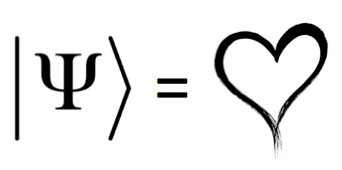
It's a small world after all / At the Big Bang's time, the universe was billions of times smaller than a particle of dust. A particle which contained the maps of stars and galaxies wich now form the cosmos, and of the animal and vegetal world which live in it. What could be held in the palm of a hand was the promise of current marvels, the atomic universe we are now living in.
Our daily lives.
Everything is now connected by an extraordinarily precise combination of random circumstances, from the lightest human thought to the achievement of big projects. The world as we know it appears to us like a village with the size of a pea, ruled by its “connections”.
Originated in 1905 by Albert Einstein and his famous relativity theory – which emerged from the study of the fusion of atoms – quantum physics were born in 1925 from the works of Werner Heisenberg, Max Planck and Wolfgang Pauli
For Einstein

For Heisenberg

Without quantum physics, there would be no atomic clocks, no computers, no lasers, no information society, no GPS, no magnetic resonance. Quantum physics represent a major part of the global economy's structure and, in a timespan of one centure, more than 40% of the global wealth.
This mathematical theory, which rejected determinism, describes atoms and elementary particles, assuming that objects are interpretable and that things change if we look at them.
Opposing Einstein's thoughts about relativity – we can not predict what the future will be – Heisenberg highlights the fact that if the causes of an event are known, its consequences are not: “reality” is forged by our brain. We forge are own reality.
Quantum physics have become the prevailing theory on which lie all the action of politiciants and firms: Barack Obama “Yes you can”, Nike “Just do It”, Apple “This is a revolution”.


